Zyrose 20 Tablet 10's


MRP ₹153
(Inclusive of all Taxes)
₹22.9 Cashback (15%)
Provide Delivery Location
Online payment accepted
 Prescription drug
Prescription drugWhats That
Composition :
Manufacturer/Marketer :
Consume Type :
Return Policy :
Expires on or after :
About Zyrose 20 Tablet
Zyrose 20 Tablet belongs to a class of medications called statins to treat raised cholesterol levels in our body. Zyrose 20 Tablet helps lower the level of low-density lipoprotein (LDL) or bad cholesterol in the blood and increase the level of high-density lipoprotein (HDL) or good cholesterol. Dyslipidaemia is the deposition of unhealthy fat (lipid) levels in the blood. In this condition, there is always a high level of low-density lipoprotein (LDL or bad cholesterol), triglycerides (TG) and a low level of high-density lipoprotein (HDL or good cholesterol).
Zyrose 20 Tablet contains 'Atorvastatin' which works by slowing the production of cholesterol in the body to decrease the amount of cholesterol that may build up on the arteries walls and block blood flow to the heart, brain, and other parts of the body. Zyrose 20 Tablet helps to decrease the production of cholesterol that may build up in the blood vessels (arteries) of the heart, brain, and other parts of the body. Lowering cholesterol levels helps prevent heart diseases such as heart attacks and strokes in the future. Zyrose 20 Tablet can also be prescribed for people with a family history of raised cholesterol in coronary heart disease or long-term health conditions of type 1, type 2 diabetes, or rheumatoid arthritis.
The prescribed dose of Zyrose 20 Tablet is daily once a day at the same time. Your doctor will advise you on how often you take your tablets based on your medical condition. You can take Zyrose 20 Tablet with food or without food. It should be swallowed whole with a glass of water. Do not chew, bite, or break it. In a few cases, you may experience allergic reactions, hyperglycaemia (excess of glucose in the bloodstream), headache, vision blurred, pain, constipation, nausea, diarrhoea, muscle spasms, joint swelling, and back pain. Most of these side effects of Zyrose 20 Tablet do not require medical attention and gradually resolve over time. Consult your doctor immediately if you have yellowing eye/skin (jaundice), dark urine, or repeated unexplained muscular pain.
Zyrose 20 Tablet may cause a breakdown of skeletal muscle tissue, leading to kidney failure. This condition usually occurs in the elderly, people with kidney disease, and poorly controlled hypothyroidism (underactive thyroid). Zyrose 20 Tablet should not be prescribed to children less than ten years of age. You should contact a doctor before if you have had an allergic reaction to Zyrose 20 Tablet , have liver or kidney problems, pregnant or planning to get pregnant, are breastfeeding, have severe lung disease, have a previous heart attack or stroke caused by bleeding in the brain, have hypothyroidism, drink more than two servings of alcohol per day and have a muscle disorder (fibromyalgia). The efficiency of Zyrose 20 Tablet can be increased by taking low-fat or cholesterol-containing food and drinks.
Uses of Zyrose 20 Tablet
Directions for Use
Medicinal Benefits
Zyrose 20 Tablet taken with dietary measures helps treat high cholesterol, especially for heart patients when initial dietary measures fail to lower cholesterol. It helps lower the bad cholesterol (LDL) and increases the level of good cholesterol (HDL) in the state of dyslipidaemia or hyperlipidaemia. Zyrose 20 Tablet is considered more effective compared to other statins. Zyrose 20 Tablet also lowers the amount of fat or cholesterol deposition (plaque) in the heart's arteries, thereby reducing the chance of having a heart attack or stroke in the future.
Storage
- Report to Your Doctor: Inform your doctor about the muscle pain, as they may need to adjust your medication.
- Stretch Regularly: Gentle stretching can help relieve muscle pain and stiffness.
- Stay Hydrated: Adequate water intake supports muscle health by removing harmful substances and maintaining proper muscle function.
- Warm or Cold Compresses: Apply cold or warm compresses to the affected area to reduce pain and inflammation.
- Rest and Relaxation: Adequate rest helps alleviate muscle strain, while relaxation techniques like deep breathing and meditation can soothe muscle tightness, calm the mind, and promote relief from discomfort.
- Gentle Exercise: Participate in low-impact activities, such as yoga or short walks, to improve flexibility, reduce muscle tension, and alleviate discomfort.
- Consult a physician: If your symptoms don't improve or get worse, go to the doctor for help and guidance.
- Please inform your doctor about joint pain symptoms, as they may adjust your medication regimen or prescribe additional medications to manage symptoms.
- Your doctor may prescribe common pain relievers if necessary to treat joint discomfort.
- Maintaining a healthy lifestyle is key to relieving joint discomfort. Regular exercise, such as low-impact sports like walking, cycling, or swimming, should be combined with a well-balanced diet. Aim for 7-8 hours of sleep per night to assist your body in repairing and rebuilding tissue.
- Applying heat or cold packs to the affected joint can help reduce pain and inflammation.
- Please track when joint pain occurs and any factors that may trigger it, and share this information with your doctor to help manage symptoms.
- If your joint pain is severe or prolonged, consult a doctor to rule out any underlying disorders that may require treatment.
- Drink water or other clear fluids.
- To prevent worsening of pain, limit intake of tea, coffee, or alcohol.
- Include bland foods like rice, toast, crackers, and rice in your diet.
- Avoid lying down immediately after eating as it may cause indigestion or heartburn.
- Avoid acidic and spicy food as it may cause indigestion.
- Inform your doctor about the nausea and discuss possible alternatives to the medication or adjustments to the dosage.
- Divide your daily food intake into smaller, more frequent meals to reduce nausea.
- Opt for bland, easily digestible foods like crackers, toast, plain rice, bananas, and applesauce.
- Avoid certain foods that can trigger nausea, such as fatty, greasy, spicy, and smelly foods.
- Drink plenty of fluids, such as water, clear broth, or electrolyte-rich beverages like coconut water or sports drinks.
- Use ginger (tea, ale, or candies) to help relieve nausea.
- Get adequate rest and also avoid strenuous activities that can worsen nausea.
- Talk to your doctor about taking anti-nausea medication if your nausea is severe.
- Record when your nausea occurs, what triggers it, and what provides relief to help you identify patterns and manage your symptoms more effectively.
- Inform your doctor about your constipation symptoms. They may adjust your medication or advise alternative treatments.
- Stay hydrated by drinking sufficient of water (at least 8-10 glasses a day) to help soften stool and promote bowel movements.
- Increase fibre intake by eating foods high in fibre, such as fruits, whole grains, vegetables and legumes, to help bulk up the stool.
- Establish a bowel routine by trying to go to the bathroom at the same time each day to train your bowels.
- Engaging in regular exercise, like walking or yoga, can support in bowel movement stimulation.
- Consult your doctor if constipation persists, and discuss alternative treatments or adjustments to your medication.
- Hydrate your body: Drink enough water to prevent dehydration and headaches.
- Calm Your Mind: Deep breathing and meditation can help you relax and relieve stress.
- Rest and Recharge: Sleep for 7-8 hours to reduce headache triggers.
- Take rest: lie down in a quiet, dark environment.
- Cold or warm compresses can help reduce tension.
- Stay Upright: Maintain good posture to keep symptoms from getting worse.
- To treat headaches naturally, try acupuncture or massage therapy.
- Over-the-counter pain relievers include acetaminophen and ibuprofen.
- Prescription Assistance: Speak with your doctor about more substantial drug alternatives.
- Severe Headaches: Seek emergency medical assistance for sudden, severe headaches.
- Frequent Headaches: If you get reoccurring headaches, consult your doctor.
- Headaches with Symptoms: Seek medical attention if your headaches include fever, disorientation, or weakness.
- Inform your doctor about dizziness symptoms. They may adjust your medication regimen or prescribe additional medications to manage symptoms.
- Follow your doctor's instructions for taking medication, and take it at the same time every day to minimize dizziness.
- When standing up, do so slowly and carefully to avoid sudden dizziness.
- Avoid making sudden movements, such as turning or bending quickly, which can exacerbate dizziness.
- Drink plenty of water throughout the day to stay hydrated and help alleviate dizziness symptoms.
- If you're feeling dizzy, sit or lie down and rest until the dizziness passes.
- Track when dizziness occurs and any factors that may trigger it, and share this information with your doctor to help manage symptoms.
Drug Warnings
Zyrose 20 Tablet may cause a breakdown of skeletal muscle tissue, leading to kidney failure. This condition usually occurs in the elderly, people with kidney disease, and poorly controlled hypothyroidism (underactive thyroid). Zyrose 20 Tablet should not be prescribed to children less than ten years of age. You should contact a doctor before if you have had an allergic reaction to Zyrose 20 Tablet , have a liver problem (jaundice, liver cirrhosis), or kidney problems, are pregnant or planning to get pregnant, are breastfeeding, have severe lung disease, have a previous heart attack or stroke caused by bleeding in the brain, have hypothyroidism, drink more than two servings of alcohol per day and have a muscle disorder (fibromyalgia) and damaged muscle tissue (rhabdomyolysis).
Drug-Drug Interactions
Drug-Drug Interactions
Login/Sign Up
Co-administration of ciclosporin with Zyrose 20 Tablet can increase blood levels of Zyrose 20 Tablet. This can increase the risk of developing side effects.
How to manage the interaction:
Co-administration of cyclosporine and Zyrose 20 Tablet can lead to an interaction, it can be taken if advised by your doctor. However, if you experience any symptoms like muscle pain, tenderness, weakness, or dark-colored urine, light colour stools, consult the doctor immediately. Do not stop using any medications without a doctor's advice.
Co-administration of Simeprevir and Zyrose 20 Tablet can increase the blood levels of Zyrose 20 Tablet and can increase the risk of side effects like liver damage and rhabdomyolysis( breakdown of skeletal muscle tissue).
How to manage the interaction:
Co-administration of Simeprevir and Zyrose 20 Tablet can lead to an interaction, it can be taken if advised by your doctor. However, if you experience any symptoms like muscle pain, tenderness, weakness, dark-colored urine, fever, chills, joint pain or swelling, unusual bleeding or bruising, skin rash, itching, loss of appetite, fatigue, nausea, vomiting, and yellowing of the skin or eyes, consult the doctor immediately. Do not stop using any medications without a doctor's advice.
Co-administration of Zyrose 20 Tablet and amprenavir can increase the blood levels of Zyrose 20 Tablet and can increase the risk of liver damage and rhabdomyolysis( breakdown of skeletal muscle tissue).
How to manage the interaction:
Co-administration of Zyrose 20 Tablet and Amprenavir can lead to an interaction, it can be taken if advised by your doctor. However, if you experience any symptoms like muscle pain, tenderness, weakness, dark-colored urine, fever, chills, joint pain or swelling, unusual bleeding or bruising, skin rash, itching, loss of appetite, fatigue, nausea, vomiting, and yellowing of the skin or eyes, consult the doctor immediately. Do not stop using any medications without a doctor's advice.
Co-administration of Zyrose 20 Tablet with lenalidomide may increase the risk of a rare condition called rhabdomyolysis (breakdown of skeletal muscle tissue).
How to manage the interaction:
Although there is an interaction between lenalidomide and Zyrose 20 Tablet, it can be taken if prescribed by a doctor. However, if you experience muscle pain, tenderness, or weakness, consult the doctor immediately. Do not discontinue any medications without consulting a doctor.
Coadministration of colchicine and Zyrose 20 Tablet may increase the risk of conditions that affect your muscles and kidneys.
How to manage the interaction:
Taking Colchicine with Zyrose 20 Tablet may possibly result in an interaction, but they can be taken together if prescribed by your doctor. However, contact your doctor immediately if you experience abdominal discomfort, nausea, vomiting, diarrhea, back pain, weakness, or tingling or numbness in your hands and feet. Do not discontinue any medication without consulting your doctor.
Coadministration of Nicotinamide with Zyrose 20 Tablet may increase the risk and severity of side effects like rhabdomyolysis (breakdown of skeletal muscle) or kidney damage which can be fatal.
How to manage the interaction:
Taking Nicotinamide with Zyrose 20 Tablet together can result in an interaction, but it can be taken if your doctor has advised it. If you notice any symptoms like unexplained muscle pain, muscle stiffness or tenderness, fever, dark-coloured urine, or weakness, you should contact your doctor immediately. Do not stop using any medications without first talking to your doctor.
Co-administration of Zyrose 20 Tablet and Atazanavir can increase the blood levels of Zyrose 20 Tablet and can increase the risk of liver damage and rhabdomyolysis( breakdown of skeletal muscle tissue).
How to manage the interaction:
Co-administration of Zyrose 20 Tablet and Atazanavir can lead to an interaction, it can be taken if advised by your doctor. However, if you experience any symptoms like muscle pain, tenderness, weakness, dark-colored urine, fever, chills, joint pain or swelling, unusual bleeding or bruising, skin rash, itching, loss of appetite, fatigue, nausea, vomiting, and yellowing of the skin or eyes, consult the doctor immediately. Do not stop using any medications without a doctor's advice.
Co-administration of Saquinavir and Zyrose 20 Tablet can increase the blood levels of Zyrose 20 Tablet and can increase the risk of developing liver damage and rhabdomyolysis(breakdown of skeletal muscle tissue).
How to manage the interaction:
Co-administration of Saquinavir and Zyrose 20 Tablet can lead to an interaction, it can be taken if advised by your doctor. However, if you experience any symptoms like muscle pain, tenderness, weakness, dark-colored urine, fever, chills, joint pain or swelling, unusual bleeding or bruising, skin rash, itching, loss of appetite, fatigue, nausea, vomiting, and yellowing of the skin or eyes, consult the doctor immediately. Do not stop using any medications without a doctor's advice.
Co-administration of Ritonavir and Zyrose 20 Tablet can increase the blood levels of Zyrose 20 Tablet.
How to manage the interaction:
Co-administration of Ritonavir and Zyrose 20 Tablet can lead to an interaction, it can be taken if advised by your doctor. However, if you experience any symptoms like muscle pain, tenderness, weakness, dark-colored urine, fever, chills, joint pain or swelling, unusual bleeding or bruising, skin rash, itching, loss of hunger, weakness, nausea, vomiting, and yellowing of the skin or eyes, consult the doctor immediately. Do not stop using any medications without a doctor's advice.
Co-administration of Gemfibrozil and Zyrose 20 Tablet may increase the risk or severity of side effects like muscle injury.
How to manage the interaction:
Co-administration of Gemfibrozil and Zyrose 20 Tablet can lead to an interaction, it can be taken if advised by a doctor. However, if you experience any symptoms like muscle pain, tenderness, weakness, or dark-colored urine, consult the doctor immediately. Do not stop using any medications without a doctor's advice.
Drug-Food Interactions
Drug-Food Interactions
Login/Sign Up
Diet & Lifestyle Advise
- Try aromatherapy, yoga, meditation to help relax your body and mind.
- Try to do breathing exercises to get more oxygen.
- Eat a healthy diet especially rich in soluble fibre like beans, legumes, whole grain, flax, apples, and citrus fruits.
- Try to replace most of your saturated fats with unsaturated fats that can reduce total cholesterol and LDL cholesterol quickly like avocados, olive oil, fatty fish, and nuts contain lots of heart-healthy unsaturated fats, so it’s beneficial to eat them regularly.
- Try to adopt a Mediterranean-style diet rich in olive oil, fruits, vegetables, nuts, whole grains, and fish, and low in red meat and most dairy.
- Try to give priority to more fruits and veggies in your daily meal as these contain antioxidants which help to lower LDL
- Minimize the intake of added sugar. The American Heart Association (ADA) recommends, one should not eat more than 100 calories (25 grams) of added sugar for women and children, and no more than 150 calories (37.5 grams) for men every day.
- American Heart Association recommends that sodium chloride (table salt) should intake not exceed more than 2,300 mg per day as part of a healthy eating pattern.
- As a precautionary measure, do not consume alcohol and quit smoking.
Side Effects of Zyrose 20 Tablet
- Headache
- Blurred Vision
- Muscle Weakness
- Allergic Reactions
- Hyperglycaemia (Excess glucose in the bloodstream)
- Constipation
- Nausea
- Diarrhoea
- Joint Swelling
- Back Pain
Habit Forming
Therapeutic Class
Product Substitutes
Author Details
We provide you with authentic, trustworthy and relevant information
Drug-Diseases Interactions
Drug-Diseases Interactions
Login/Sign Up
FAQs
Yes. Muscle weakness can be the long-term side effect of Zyrose 20 Tablet . You may have muscle fatigue or muscle pain which affects your daily activity. Try to contact the doctor if you have muscle weakness or fatigue.
No, there's no evidence that atorvastatin is addictive.
Zyrose 20 Tablet can raise your blood sugar a little. If you already have type 2 diabetes, please consult your doctor. Your doctor may adjust the dosage of Zyrose 20 Tablet .
There's no strong evidence to suggest that taking Zyrose 20 Tablet will reduce fertility in either men or women. However, it is advisable to consult a doctor before taking it if you're likely to get pregnant or pregnant.
Increase your daily diet with fibre, fruits, vegetables, whole grains and fish, and cut saturated fat as well. Stop smoking and drinking and try to work out every day as well.
No, you should not stop taking Zyrose 20 Tablet without consulting your doctor. Please take advice from the doctor before quitting.
Yoghurt is a probiotic that can help lower the raised cholesterol level if taken with Zyrose 20 Tablet . Yoghurt eaters have a better metabolic profile than those who don't eat yoghurt.
There is no firm clinical evidence that states that intake of Zyrose 20 Tablet causes harm to the baby. However, Zyrose 20 Tablet passes into the breast milk and may harm the baby. So, you should consult a doctor if you are a nursing mother and taking Zyrose 20 Tablet .
People affected with hypothyroidism (underactive thyroid), muscle weakness, joint pain, kidney disease, diabetes, liver disease, uncontrolled epilepsy, high or low potassium level, or severely low blood pressure.
Drug-Drug Interactions Checker List
- CEPHALEXIN
- TETRACYCLINE
- GENTAMICIN
- MICONAZOLE
- FLUCONAZOLE
- KETOCONAZOLE
- ABACAVIR
- RETROVIR
- TENOFOVIR DISOPROXIL
- RIBAVIRIN
- ELBASVIR
- CYCLOSPORIN
- AMIODARONE
- VERAPAMIL
- DILTIAZEM
Special Advise
- Suppose muscle fatigue or muscle pain affects your daily activity. Try to contact the doctor if you have muscle weakness or fatigue.
Disease/Condition Glossary
High cholesterol: Cholesterol is a waxy substance produced by the liver to protect nerves, make tissue, and various hormones. Our body also receives cholesterol from food, like cooking oils, eggs, meats, and dairy products. Excess cholesterol is bad for our health. There are two types of cholesterol: ' bad cholesterol' and 'good cholesterol'. Bad cholesterol comprises low-density lipoprotein (LDL) and triglycerides (TG), while good cholesterol consists of high-density lipoprotein (HDL). Usually, there are no specific symptoms of raised or high cholesterol levels but a large deposition of cholesterol in the arteries (plaque) or heart blockage. Blocked artery or plaque formation in the heart's arteries can lead to chest pain (angina), heart attack, or stroke. So it is advisable to have complete cholesterol tests (lipid profile tests) at least once a year. It will help you closely monitor your heart health and risk of heart attack and stroke.

Have a query?
Buy best Cardiology products by
Torrent Pharmaceuticals Ltd
Sun Pharmaceutical Industries Ltd
Lupin Ltd
Intas Pharmaceuticals Ltd
Cipla Ltd
Micro Labs Ltd
Macleods Pharmaceuticals Ltd
Abbott India Ltd
Ajanta Pharma Ltd
Ipca Laboratories Ltd
Eris Life Sciences Ltd
Mankind Pharma Pvt Ltd
Lloyd Healthcare Pvt Ltd
Dr Reddy's Laboratories Ltd
Glenmark Pharmaceuticals Ltd
Emcure Pharmaceuticals Ltd
Alembic Pharmaceuticals Ltd
Alkem Laboratories Ltd
East West Pharma India Pvt Ltd
USV Pvt Ltd
Zydus Healthcare Ltd
Aristo Pharmaceuticals Pvt Ltd
Elbrit Life Sciences Pvt Ltd
J B Chemicals & Pharmaceuticals Ltd
Zydus Cadila
Akumentis Healthcare Ltd
Alteus Biogenics Pvt Ltd
Hbc Life Sciences Pvt Ltd
Fusion Health Care Pvt Ltd
Troikaa Pharmaceuticals Ltd
La Renon Healthcare Pvt Ltd
Corona Remedies Pvt Ltd
Jubilant Lifesciences Ltd
Medley Pharmaceuticals Ltd
Knoll Healthcare Pvt Ltd
Msn Laboratories Pvt Ltd
Zuventus Healthcare Ltd
Cadila Pharmaceuticals Ltd
Blue Cross Laboratories Pvt Ltd
Lividus Pharmaceuticals Pvt Ltd
Morepen Laboratories Ltd
Ranmarc Labs
Shrrishti Health Care Products Pvt Ltd
Sanofi India Ltd
Steris Healthcare
Elder Pharmaceuticals Ltd
Primus Remedies Pvt Ltd
Unison Pharmaceuticals Pvt Ltd
Eswar Therapeutics Pvt Ltd
Knoll Pharmaceuticals Ltd
Tas Med India Pvt Ltd
Systopic Laboratories Pvt Ltd
Indiabulls Pharmaceuticals Pvt Ltd
Leeford Healthcare Ltd
Sinsan Pharmaceuticals Pvt Ltd
Biochem Pharmaceutical Industries Ltd
Cadila Healthcare Ltd
Azkka Pharmaceuticals Pvt Ltd
Nirvana India Pvt Ltd
Orsim Pharma
Prevego Healthcare & Research Pvt Ltd
Econ Healthcare
Elinor Pharmaceuticals (P) Ltd
FDC Ltd
Sunij Pharma Pvt Ltd
Nicholas Piramal India Ltd
Astra Zeneca Pharma India Ltd
Pfizer Ltd
Lia Life Sciences Pvt Ltd
Shine Pharmaceuticals Ltd
Elicad Pharmaceuticals Pvt Ltd
Indoco Remedies Ltd
Proqol Health Care Pvt Ltd
Vasu Organics Pvt Ltd
Biocon Ltd
Opsis Care Lifesciences Pvt Ltd
Johnlee Pharmaceuticals Pvt Ltd
Merck Ltd
Wockhardt Ltd
Auspharma Pvt Ltd
Ergos Life Sciences Pvt Ltd
Lakshya Life Sciences Pvt Ltd
Ordain Health Care Global Pvt Ltd
Pficus De Med Pvt Ltd
ALICAN PHARMACEUTICAL PVT LTD
RPG Life Sciences Ltd
Glynis Pharmaceuticals Pvt Ltd
Orris Pharmaceuticals
Samarth Life Sciences Pvt Ltd
Aprica Pharmaceuticals Pvt Ltd
Aretaeus Pharmaceuticals Pvt Ltd
Koye Pharmaceuticals Pvt Ltd
Neocardiab Care
Retra Life Science Pvt Ltd
Alniche Life Sciences Pvt Ltd
Alvio Pharmaceuticals Pvt Ltd
Arkas Pharma Pvt Ltd
Atos Lifesciences Pvt Ltd
Divine Savior Pvt Ltd
Metalis Lifesciences Pvt Ltd
Alcohol
Unsafe
Do not drink too much while taking this medicine. drinking a lot of alcohol you may more likely to get muscle and liver side effects.
Pregnancy
Caution
Zyrose 20 Tablet is not recommended during pregnancy. Contact your doctor before taking Zyrose 20 Tablet .
Breast Feeding
Caution
Breastfeeding is not recommended. Contact your doctor before taking Zyrose 20 Tablet .
Driving
Unsafe
Zyrose 20 Tablet has negligible influence on the ability to drive and use machines.
Liver
Caution
Zyrose 20 Tablet to be taken with caution, especially if you have a history of Liver diseases/conditions. The dose may have to be adjusted by your doctor.
Kidney
Caution
Zyrose 20 Tablet to be taken with caution, especially if you have a history of Kidney diseases/conditions. The dose may have to be adjusted by your doctor.
Children
Unsafe
Zyrose 20 Tablet is not indicated in the treatment of patients below the age of 10 years.



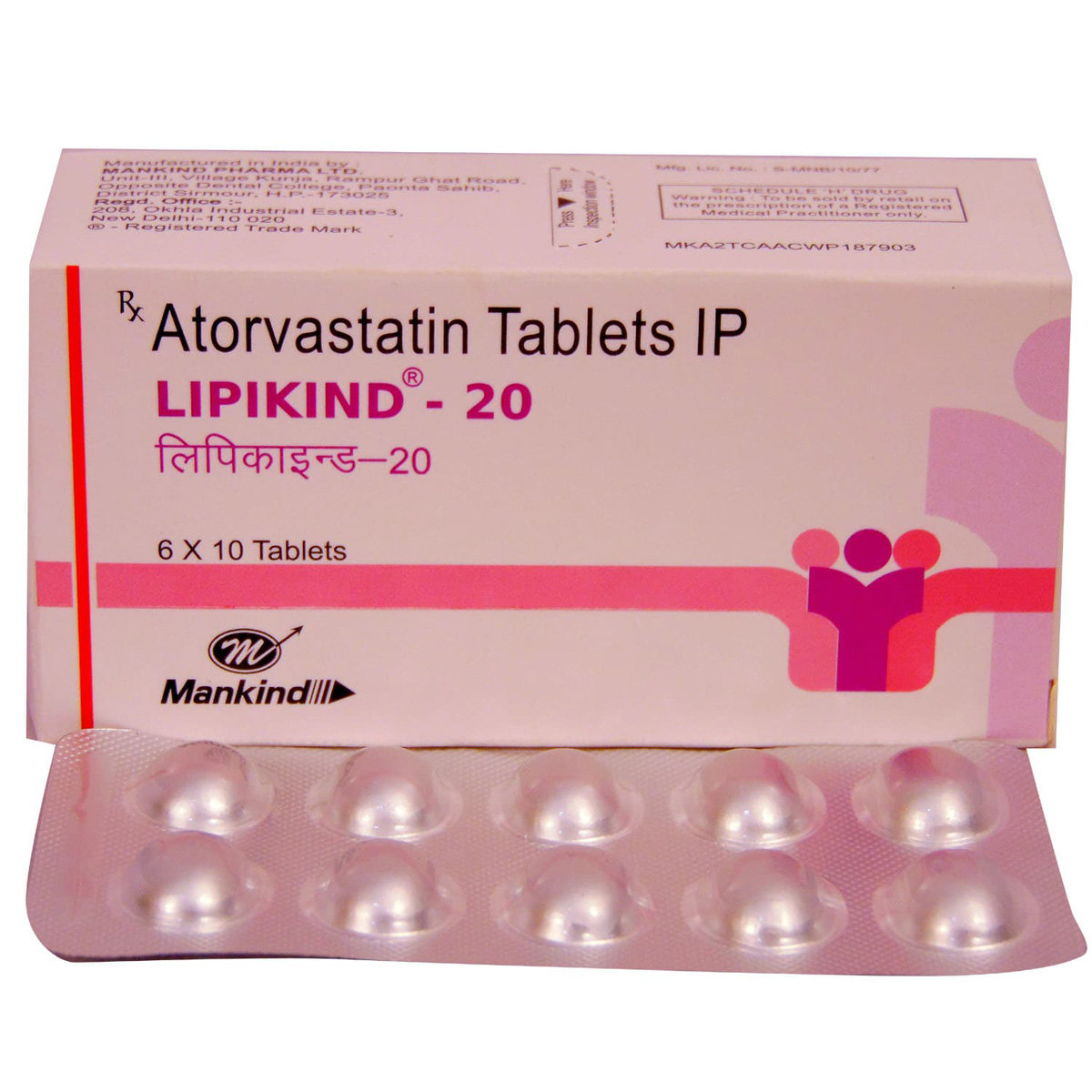
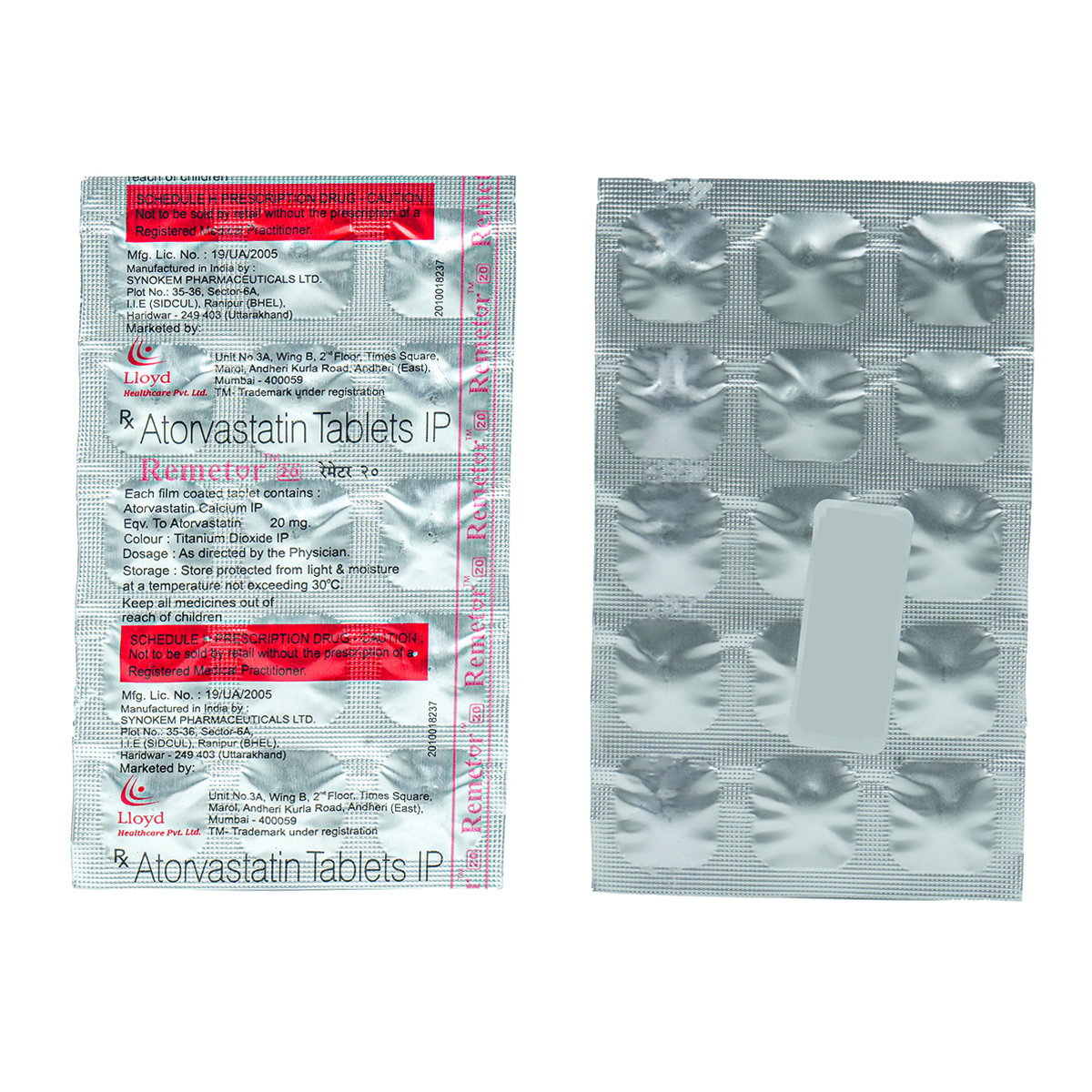

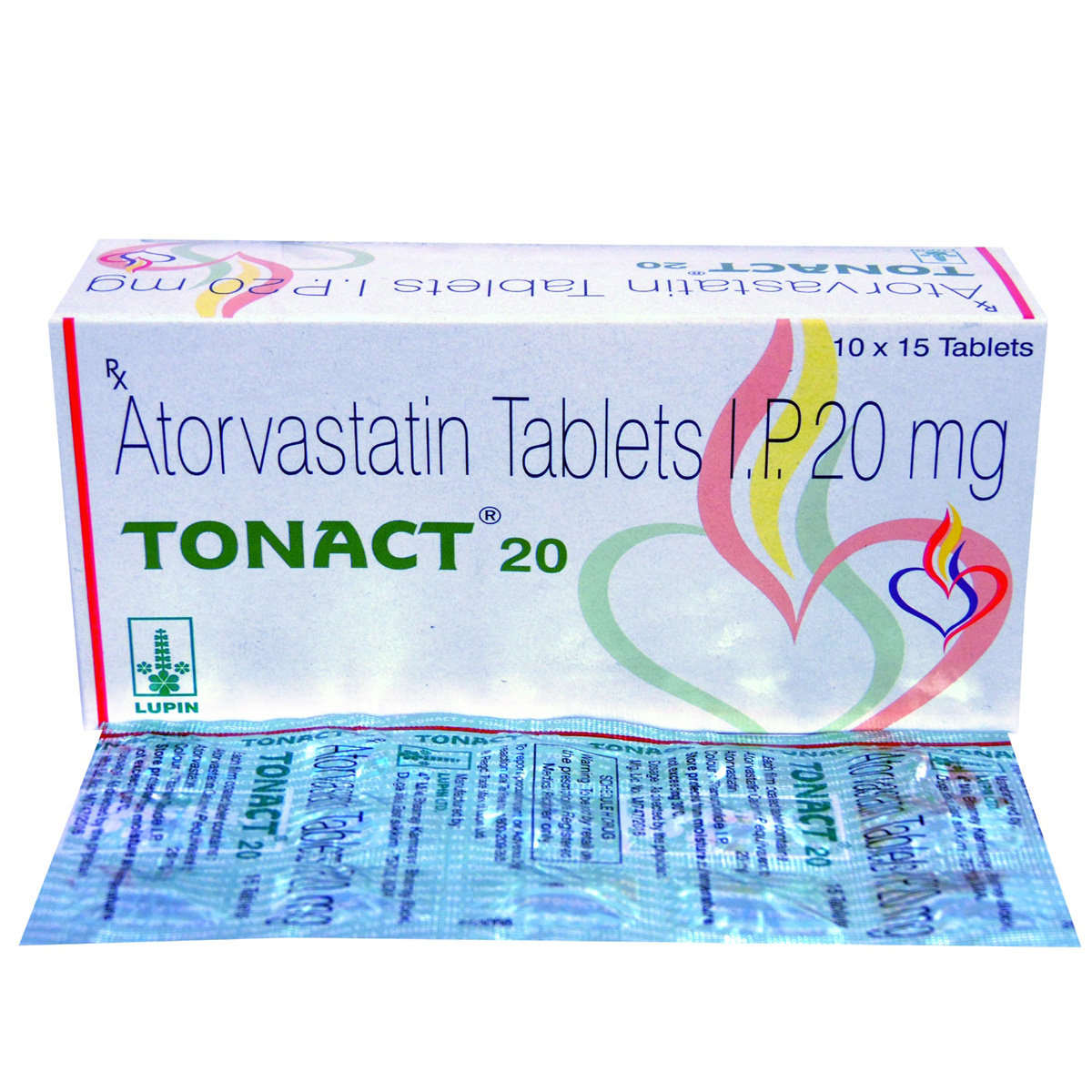
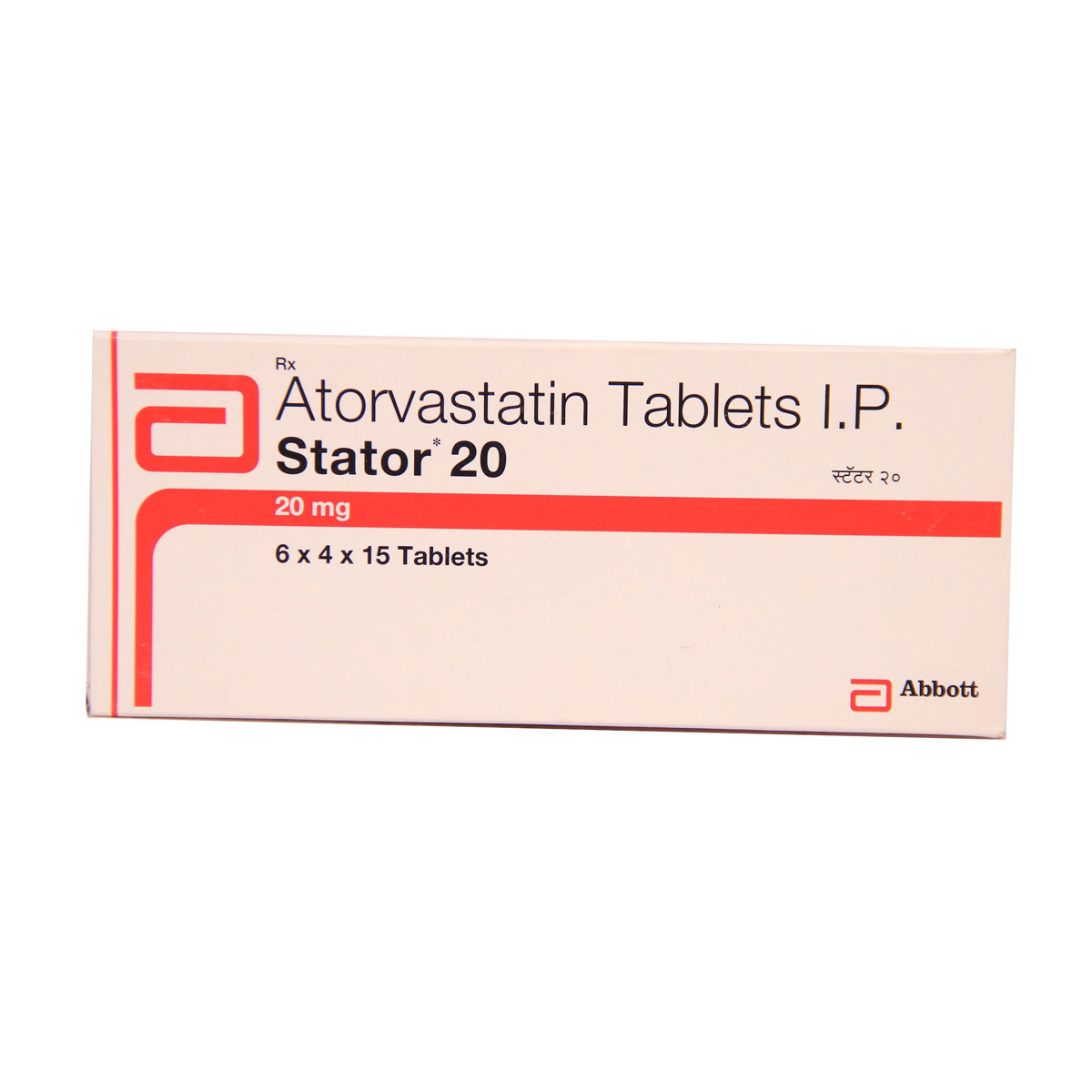
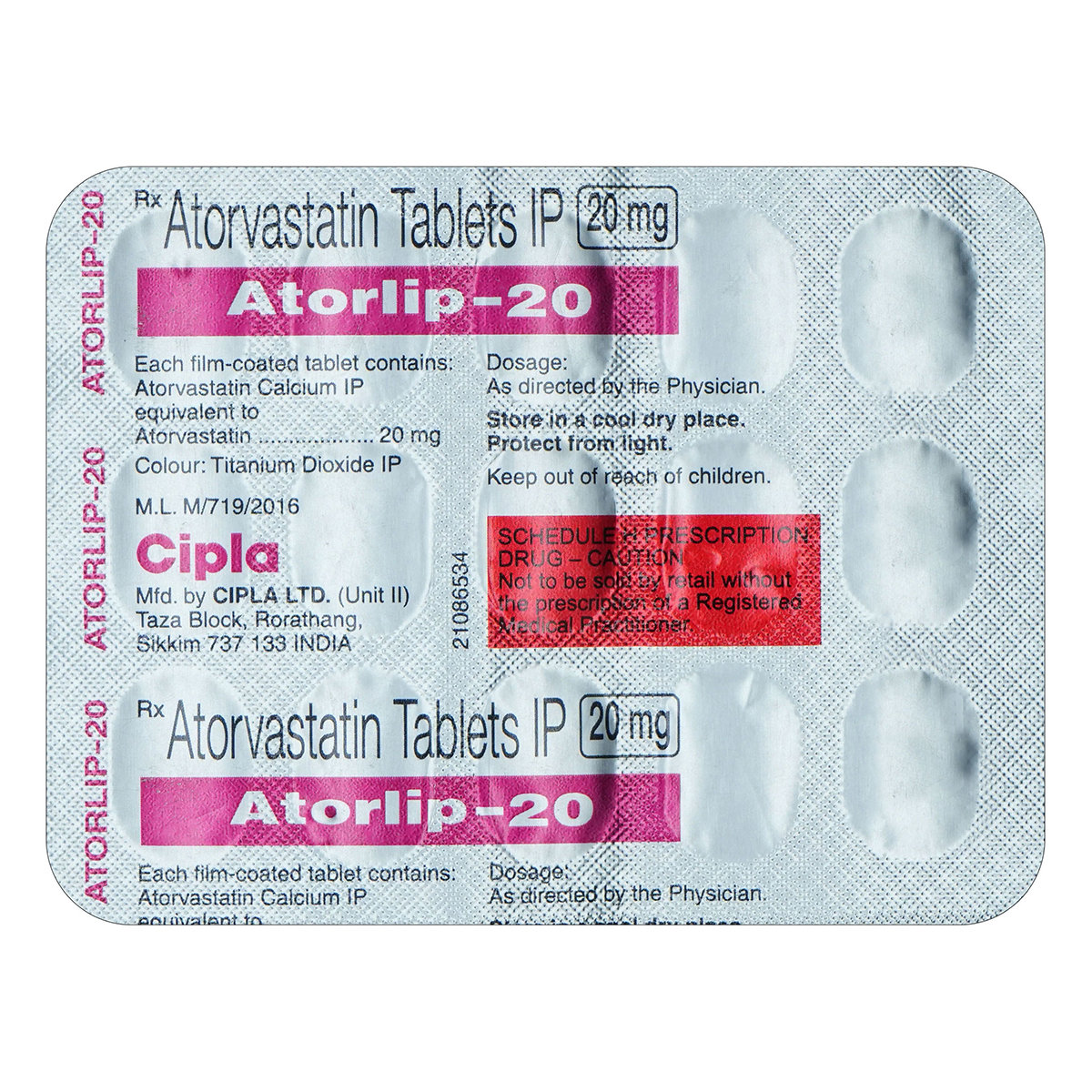

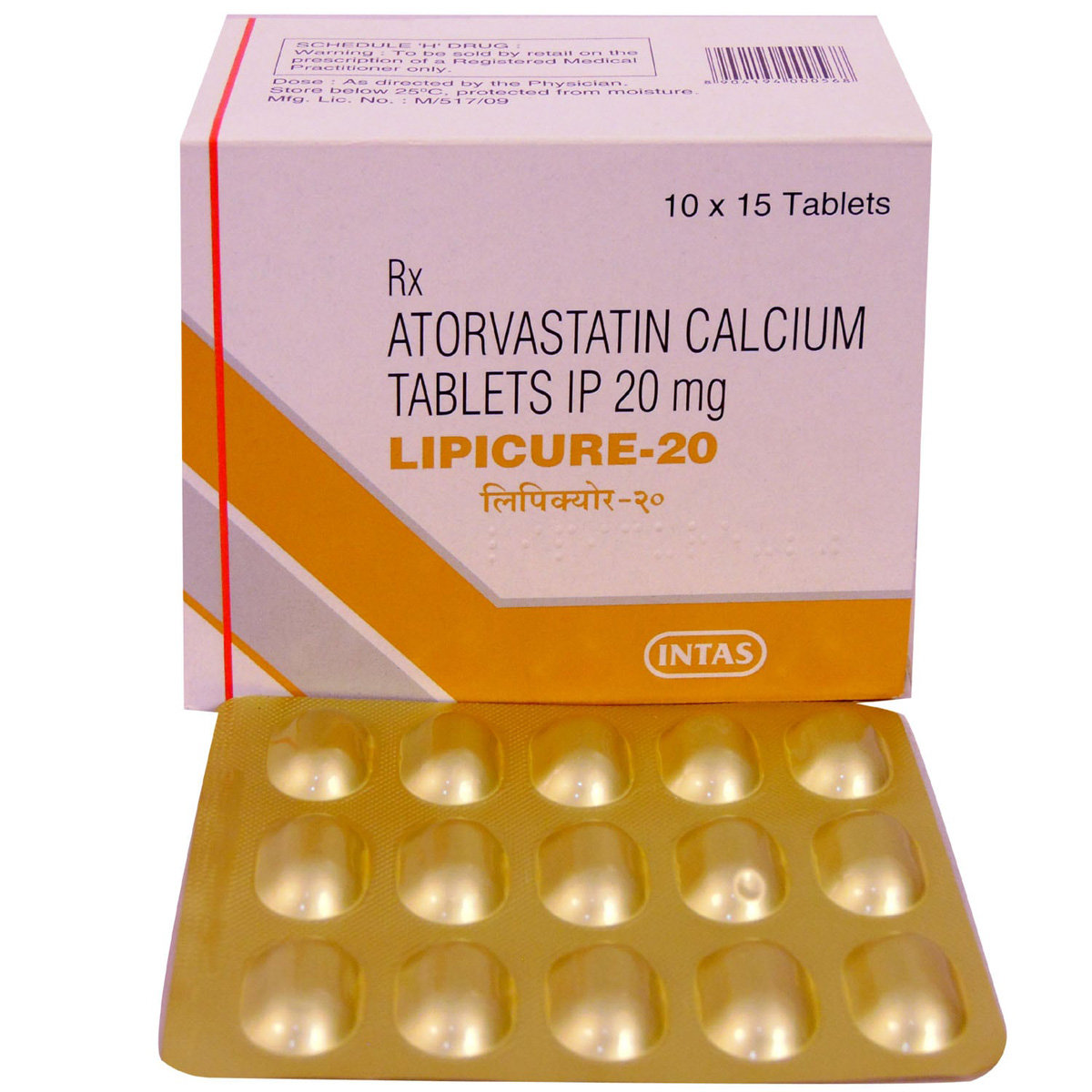
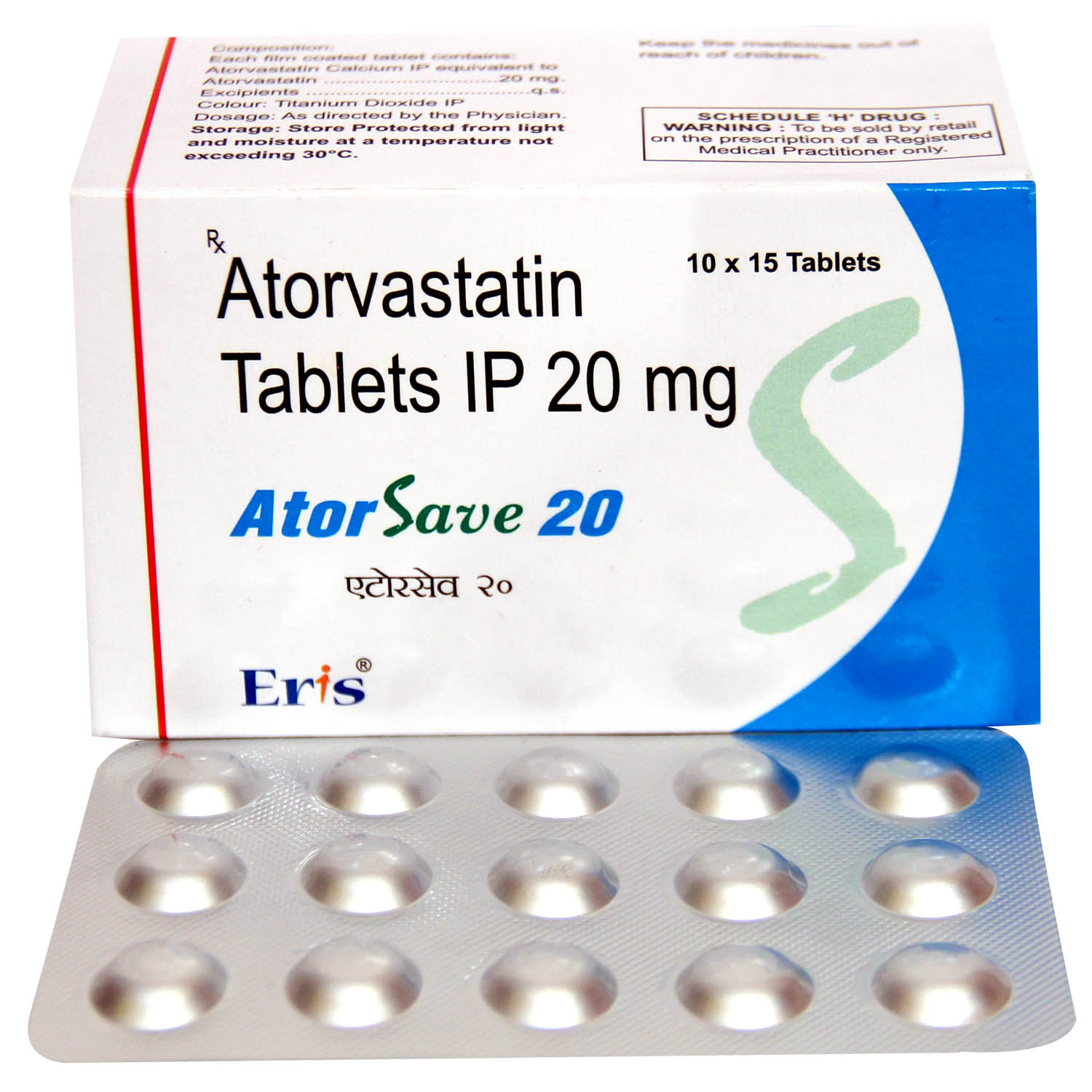

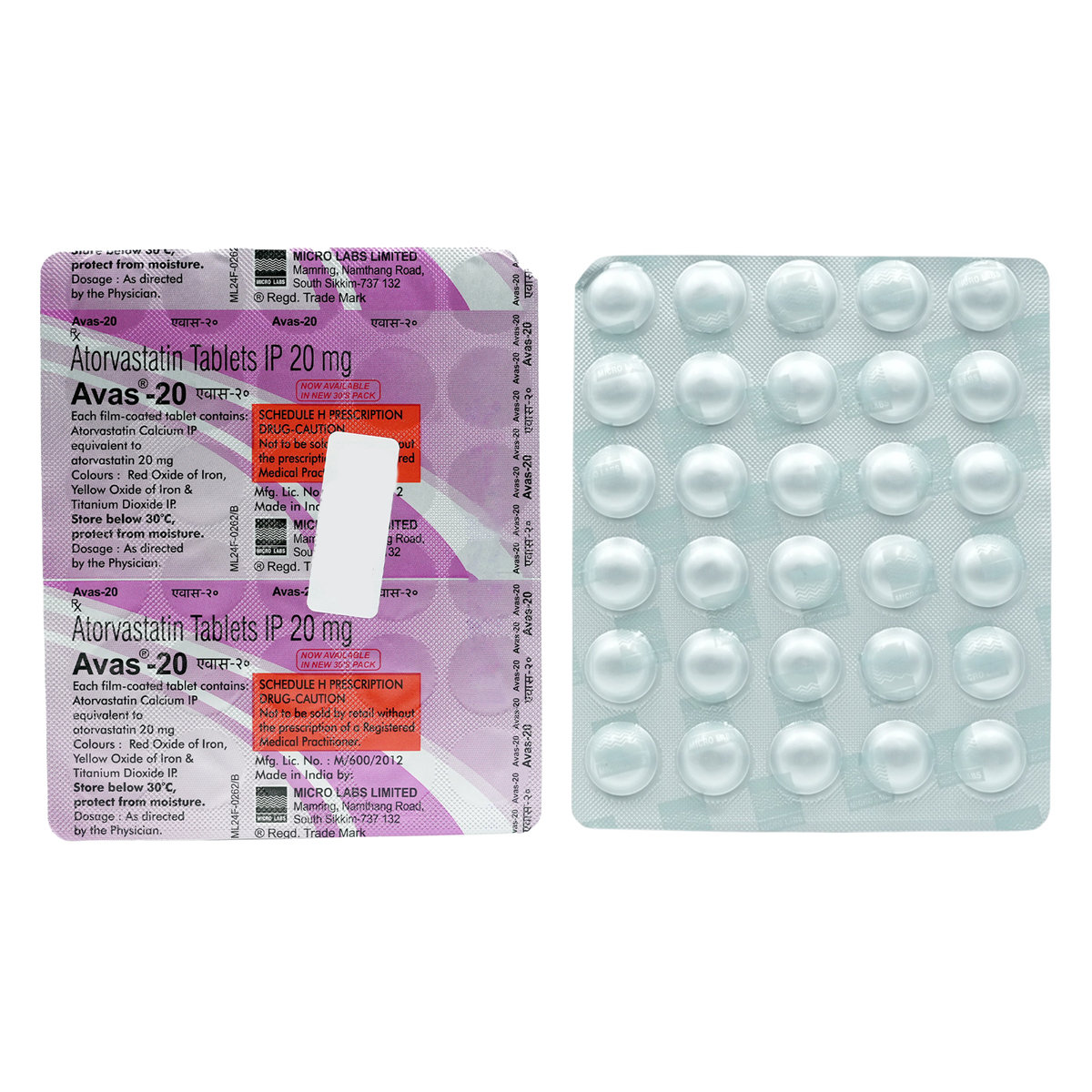
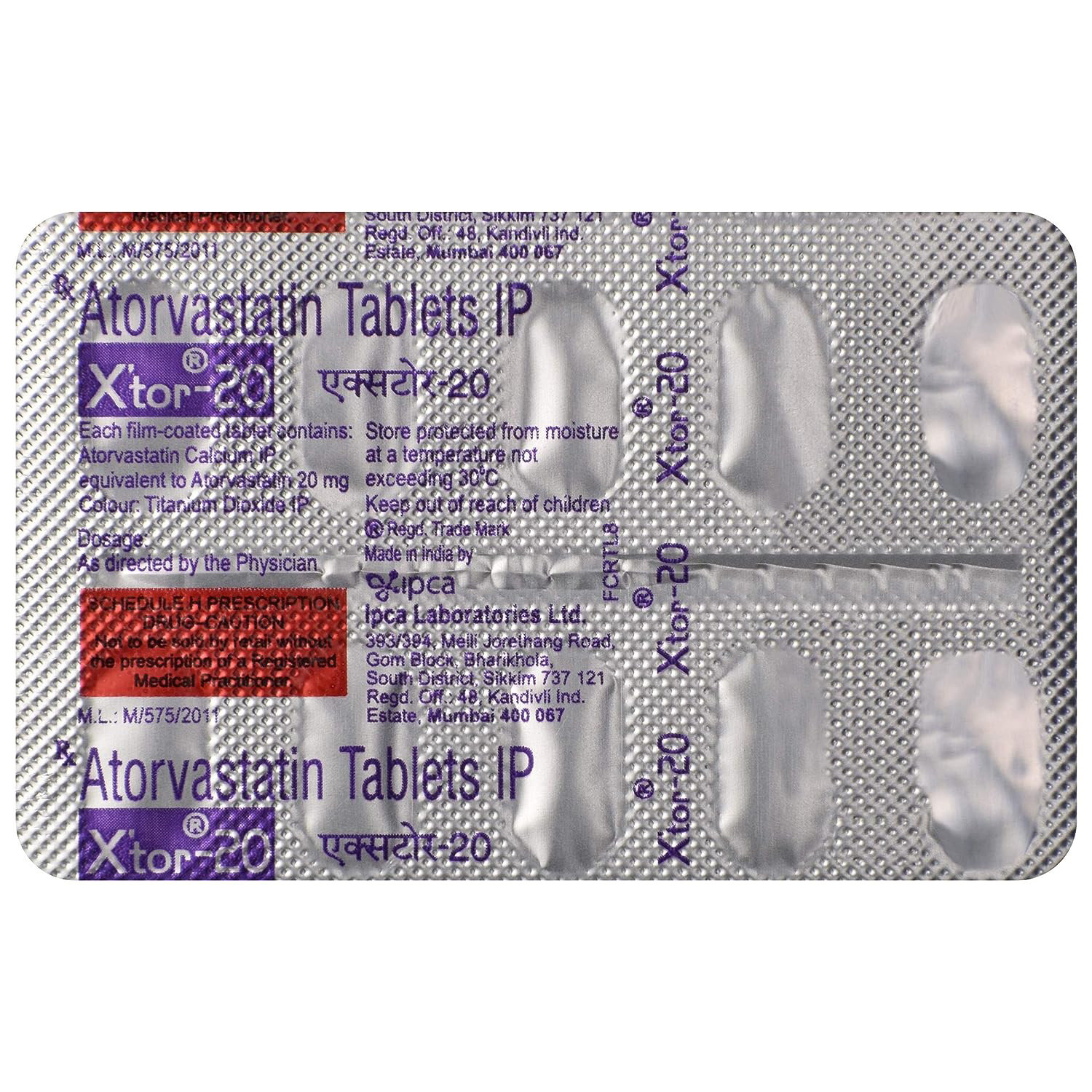
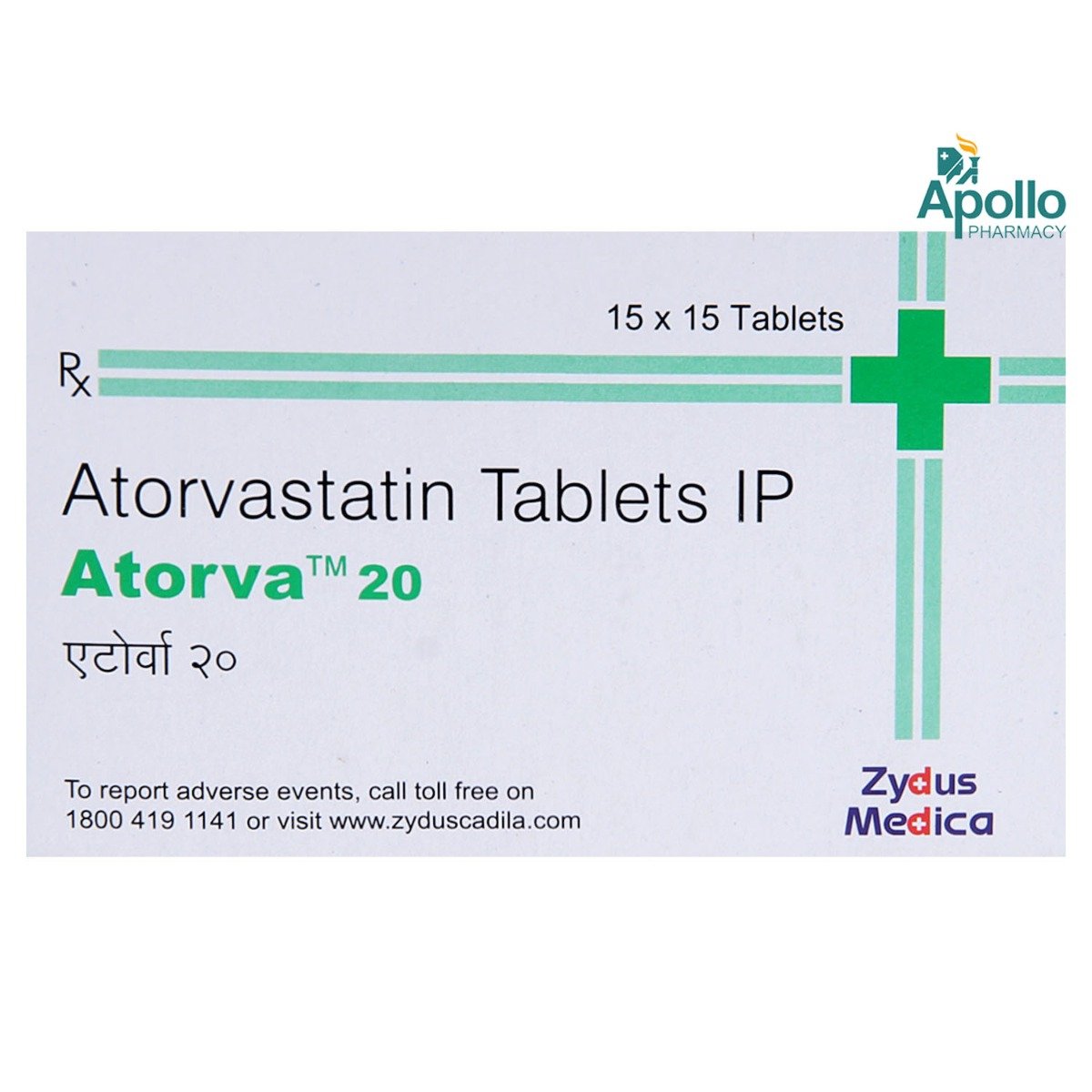
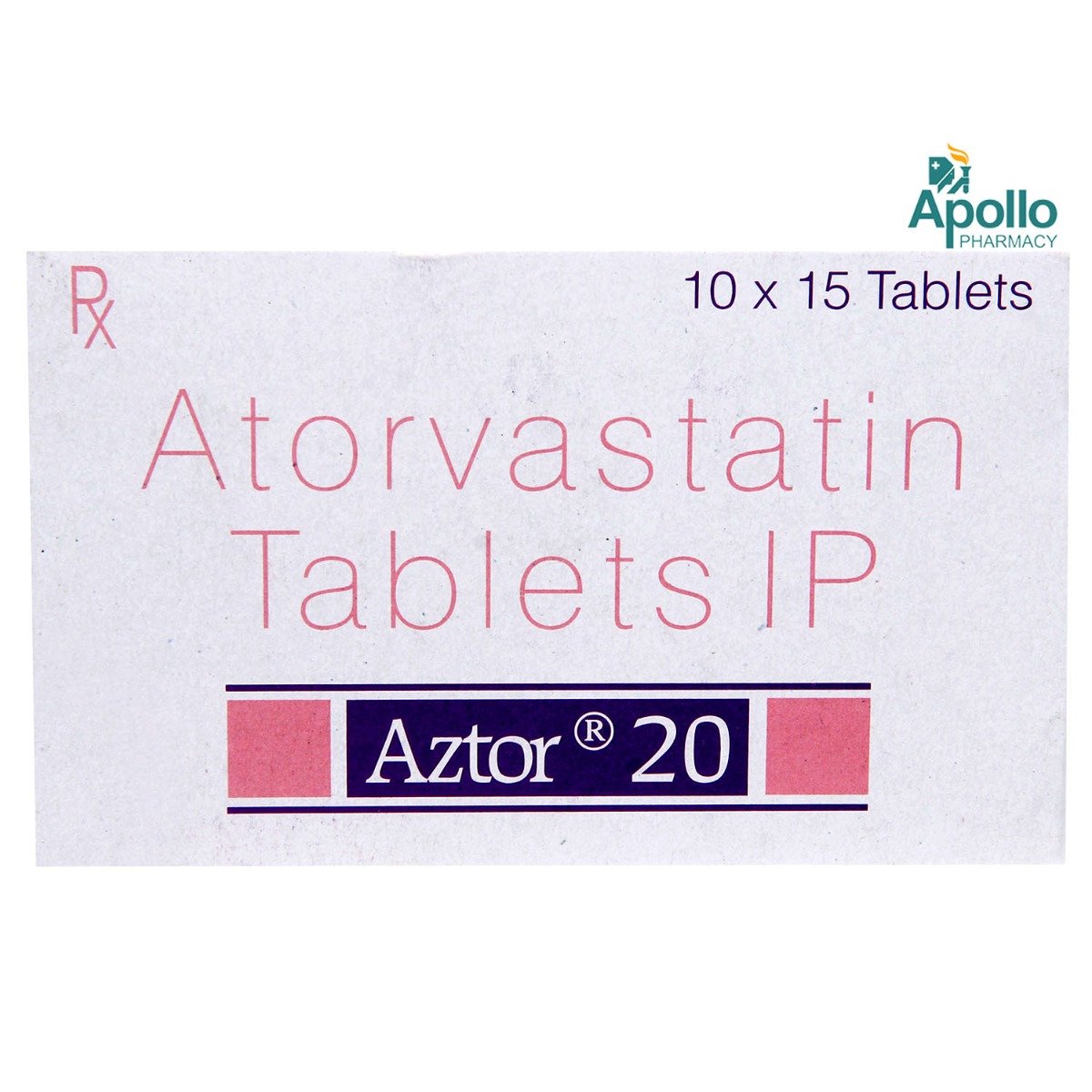
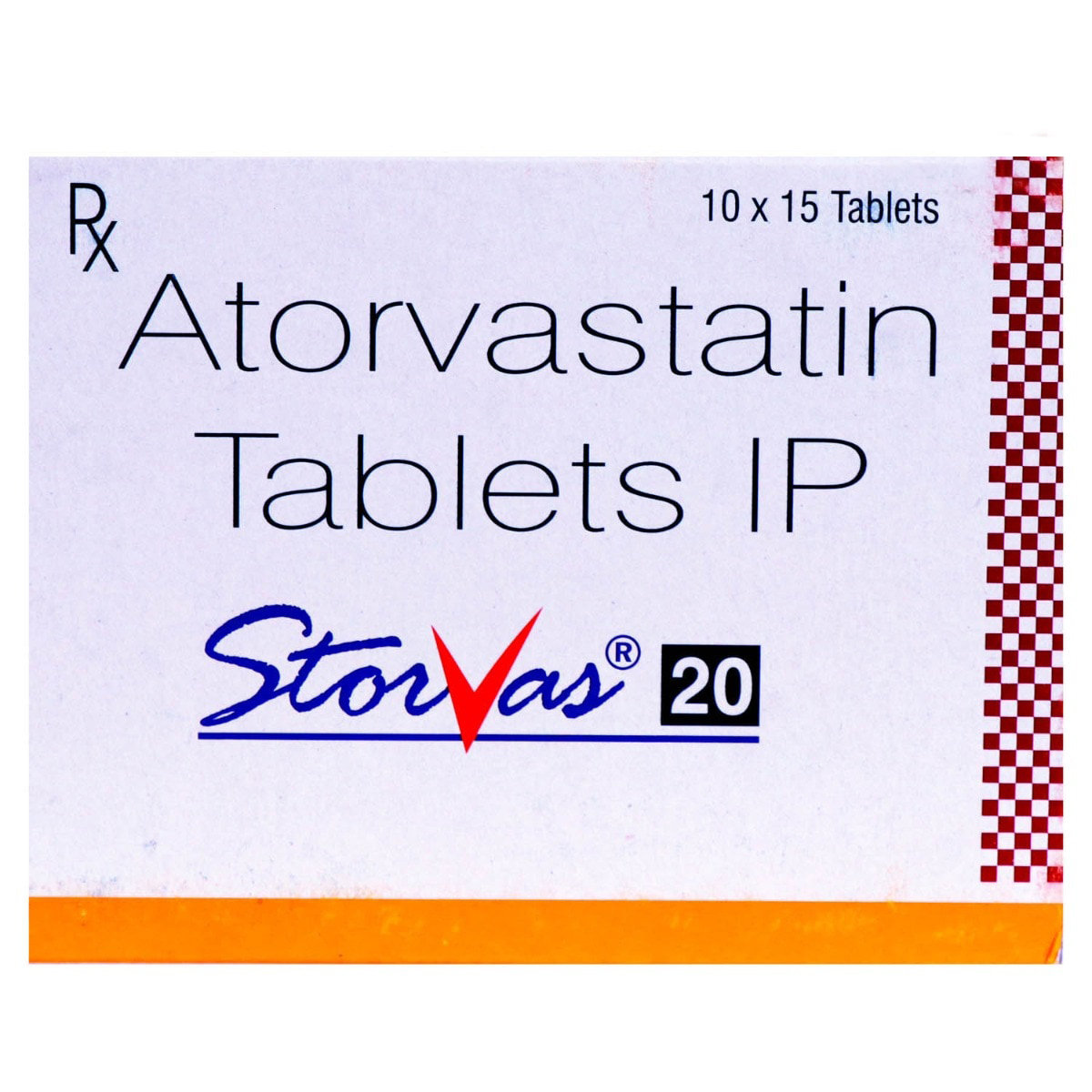


_0.jpg?tr=q-85)
